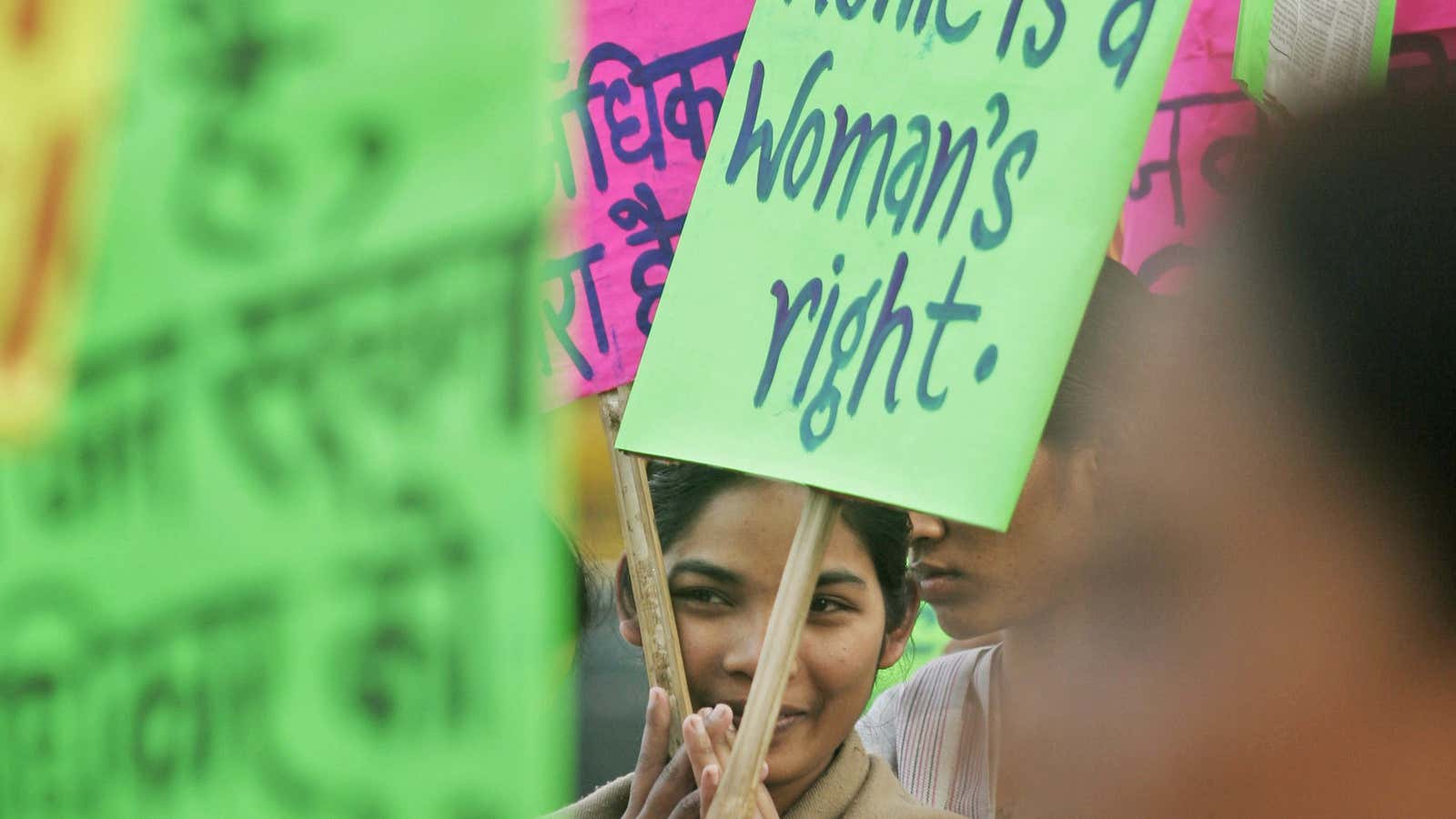With Indians under lockdown due to the Covid-19 pandemic, crimes against women didn’t stop—they just changed.
There was a significant increase in domestic violence complaints and cybercrime complaints in May 2020 in Indian districts that saw the strictest lockdown measures (red zones) relative to districts that saw the least strict measures (green zones), the analysis of complaints received by the National Commission for Women (NCW) has revealed.
Meanwhile, rape and sexual assault complaints fell, “likely due to decreased mobility in public spaces, public transport, and workplaces,” the study by researchers from University of California Los Angeles noted.
“Women face a portfolio of danger and policies such as lockdowns can improve certain types of violence outcomes while exacerbating others,” said Manisha Shah, study’s co-author and professor of public policy at UCLA.
The study, though, cautioned that the dip in rape complaints don’t paint the full picture.
“We cannot rule out the possibility of some displacement of rape and sexual assault from public spaces outside homes to rape by family members inside homes,” the study said. “While marital rape is vastly underreported in India since it is not considered a crime, it is likely to be increasing during the lockdown period.” If marital rape is reported, it generally gets reported as domestic violence.
Attitudes toward domestic violence play an important role in the incidence and reporting of domestic violence during the lockdown. Using data from the National Family Health Survey 4 (2015-2016), the researchers showed that districts where a greater proportion of husbands report that beating wives is “justified” see greater increases in domestic violence complaints. On the other hand, districts in which a greater proportion of wives report that a husband beating his wife is justified see fewer such complaints.
“This is important for policy: in fact, research that I have undertaken in Tanzania shows that a soccer intervention to empower and change social norms targeting boys and young men decreases adolescent female reports of intimate partner violence,” said Shah.
India, too, needs to approach actual reform similarly.
